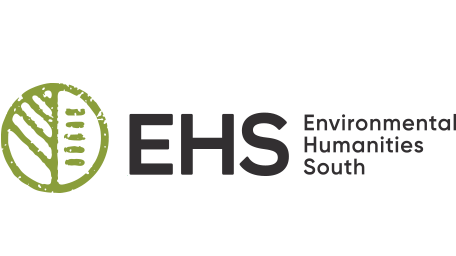EHS seminar: Dr Sthembile Ndwandwe

For the upcoming EHS fortnightly seminar, we are excited to have Dr Sthembile Ndwadwe from the University of Cape Town's Bioeconomy Research Chair. In this fortnightly seminar, Dr Ndwandwe will explore strategies of exclusion in the biodiversity economy through the lens of the honeybush (cyclopia ssp). Much has been written about the ways in which the South African government, together with other stakeholders seek to ensure equitable and just partnerships toward the beneficiation of historically marginalised communities in the cultivation of nature "products" such as honeybush plant.
DATE: 20 March 2025
TIME: 11:00 AM - 12:30 PM
VENUE: Humanities Building Level 4, Office 4.19, Upper Campus
Zoom ID: [Meeting ID: 926 7765 5029 | Passcode: 380317]
RSVP to Zainab.adams@uct.ac.za
Abstract:
Honeybush is a plant that has been a companion and witness to Black, Coloured, and Indigenous people alienation from nature, economic subordination and their agency in the commercialisation of South Africa’s biodiversity. For centuries, honeybush has been harvested from the wild and primarily consumed as tea, alongside other plants that attracted the interest of colonial and apartheid governments as well as white merchants. In the post-apartheid era, the democratic government has undertaken efforts to transform the commercialisation of biodiversity through the Biodiversity Economy Operation Phakisa (BEOP) initiative. This initiative integrates historically marginalised people into the commercial exploitation of natural resources and enjoyment of nature. The initiative supports socio-economic transformation through cultivation, conservation, job creation, wild harvesters’ participation in the value chain, and honeybush industry transformation through mechanisms such as Access and Benefit Sharing (ABS). However, the honeybush case shows that the persistent adoption of neoliberal conservation and capitalist policy approaches by government, undermine the transformative change that the BEOP seeks to achieve. Moreover, these interventions have normalised structural violence, landlessness, reconfigured the human-honeybush relationship, and overlooked other forms of marginalisation, including epistemic, ambient, licensed, and institutional exclusions. These exclusions continue to subordinate Black, Coloured, and Indigenous people within the biodiversity economy, limiting their equitable participation and benefits. In this seminar I will unpack these exclusions and explore pathways to emancipatory transformation and a more just biodiversity economy. Honeybush tea will be served.
Bio: Dr Sthembile Ndwandwe is a Postdoctoral Research Fellow associated with the DSI/NRF SARChI: Environmental and Social Dimensions of the Bio-economy in the Department of Environmental and Geographical Science at the University of Cape Town. She is actively involved in the implementation and governance of biodiversity economy in South Africa and globally through the GEF Small Grants Programme (SGP) National Steering Committee, and the Rethinking Biodiversity-based Economies for Conservation and Equity Steering Committee, and the Honeybush Community of Practice. As a geographer, her interests span engaged scholarship, Access and Benefit Sharing (ABS), Black ecologies, and addressing epistemic power in the biodiversity economy.
